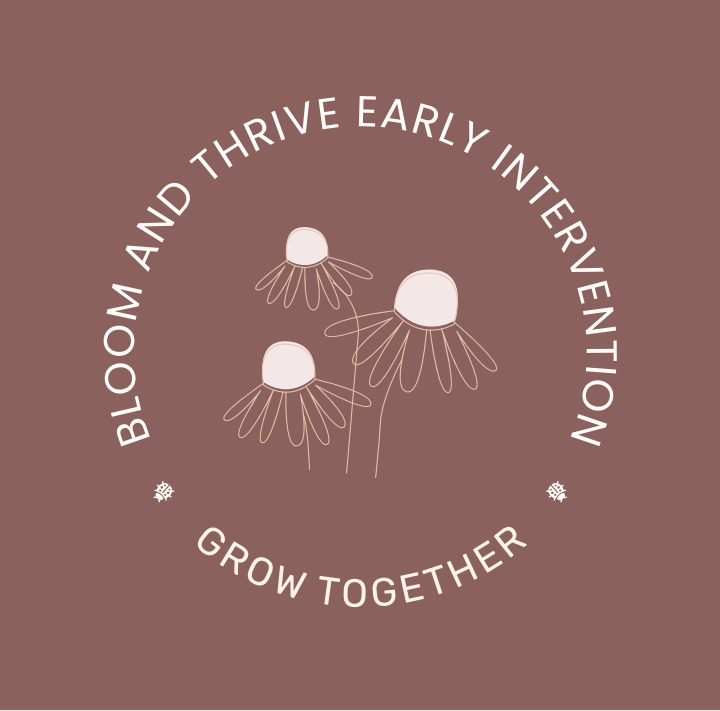Our Services
Our professional therapy services are designed to cater to individual needs, offering personalised support and guidance in a confidential and compassionate environment. Services delivered by an Early Childhood Specialist teacher, working as a keyworker under the NDIS early childhood approach to early intervention.
A Key Workers role is to support families in connecting with your child's diverse health care and education team. Supporting families to connect with services and therapy professionals within our community through referral.
Collaborate with health professionals to develop and deliver individualised therapy programs.
Liaise with relevant NDIS partners.
Deliver tailored service delivery.
Referrals to relevant health care professionals
Development high quality evidenced based documentation and NDIS plan review reports.
Provide opportunities and strategies for inclusive access to engage in community participation.
This model is widely considered best practice in supporting a child’s developmental needs because it leads to better long-term outcomes for the child and family.
If your child is a NDIS participant, you may like to consider engaging with a Specialist teacher Keyworker through the NDIS Early Childhood Approach.
- 0-9 years Early Childhood Intervention services delivered by a Specialist Teacher.
Falling under the Capacity Building – Improved Daily Living support category. We support families throughout the Bega Valley and surrounding communities.
The Role of a Key Worker
A key worker serves as the family's primary partner and coordinator in navigating services that support their child’s development. This role is grounded in collaboration, expertise, and a deep understanding of each family’s unique journey.
Trusted Partner for Families
Builds a strong, respectful relationship with the family.
Listens actively to understand the child’s strengths and the family’s goals.
Ensures the family's priorities shape every aspect of planning and support.
Strategic Planning and Coordination
Leads the development of a Child and Family Support Plan, which includes:
Clear goals and outcomes tailored to the child.
Targeted strategies and services.
Contributions from other professionals as needed.
Coordinates the broader team to ensure services are streamlined and cohesive.
Direct Support and Specialist Access
Delivers therapy and support based on their own professional expertise.
Accesses and integrates input from specialists (e.g., physiotherapists, psychologists, Occupational therapists’) to meet the child’s evolving needs.
Acts as a consistent point of contact, reducing complexity for the family.
Continuous Review and Responsiveness
Reviews the support plan annually with the family.
Updates strategies to reflect:
The child’s growth and emerging abilities.
Any changes in the family’s circumstances or goals.
Maintains flexibility to adapt services as needed.
Therapeutic Supports for Children Aged 9+
We offer tailored therapeutic supports for children aged 9 and above, designed to build independence, emotional resilience, and functional skills across home, school, and community settings. Delivered by a qualified teacher with expertise in developmental support, our services are grounded in evidence-informed strategies, collaborative planning, and practical tools that empower children and their families.
Funding Category:
Supports are delivered under the NDIS funding category Capacity Building – Improved Daily Living (Support Item: Other Professional).
What We Offer:
• Weekly or fortnightly therapy sessions
• Collaborative planning with families and educators
• Custom resource development and progress tracking
• Advocacy and transition support for school and service navigation
How We help:
Our supports are tailored to each child’s unique developmental profile, with a focus on strengthening:
Self-Regulation and Emotional Coping strategies:
Age-appropriate tools and strategies to manage anxiety, frustration, and transitions, including visual supports and self-awareness techniques.
Executive Functioning:
Structured activities and coaching to build skills in planning, organisation, working memory, and flexible thinking.
Social and Communication Skills:
Support for peer interaction, perspective-taking, and assertive communication through role-play, visual prompts, and collaborative games.
Community Participation and Social Engagement:
We support children in developing the confidence and skills needed to engage meaningfully in community and social settings. This includes building capacity for participation in group activities, navigating unfamiliar environments, and fostering positive relationships outside of school and home.
Through structured outings, role-play, and tailored coaching, children learn how to manage social expectations, initiate interactions, and respond to challenges with resilience. We also collaborate with families to identify opportunities for inclusion—whether it’s joining a local club, attending events, or accessing recreational programmes—and provide practical strategies to support successful engagement.
Our goal is to help children feel safe, capable, and connected in the broader community, promoting a sense of belonging and independence in everyday life.
Academic Readiness:
Reinforcement of foundational learning concepts, classroom participation, and adaptive strategies in partnership with educators.
Self-Help and Independence:
Development of routines, problem-solving skills, and confidence in daily tasks such as hygiene, time management, and homework.
Assessment and Planning:
• Functional assessments including ABC profiles and developmental check-ins.
• Co-designed goals and resource packs to ensure consistency across environments.
• Ongoing progress monitoring with session notes, goal reviews, and summary reports.
Advocacy and Transitions:
We assist families with school transitions, NDIS documentation, and service navigation—ensuring children are supported every step of the way.
Early intervention represents
best practice in early childhood
Early childhood intervention involves offering specialised support and services to children experiencing developmental delays or disabilities. The goal is to enhance their development, overall well-being, and ability to participate in their community. A crucial aspect of this approach is equipping parents and caregivers with the necessary information, tools, and support to foster their child's growth effectively.
Supporting a child’s development within their natural environments, such as at home, school and childcare, ensures that growth and learning opportunities extend beyond formal clinical settings. This approach leverages everyday interactions and routines to build a child’s capacity effectively. Research highlights that the most significant influence on a child’s learning and development comes from the important people in their life, such as parents and caregivers. For more information, visit Early Childhood Intervention Australia.
Services
Filters
No results found
No results match your search. Try removing a few filters.
Contact us
Interested in starting your child’s journey to thrive?



